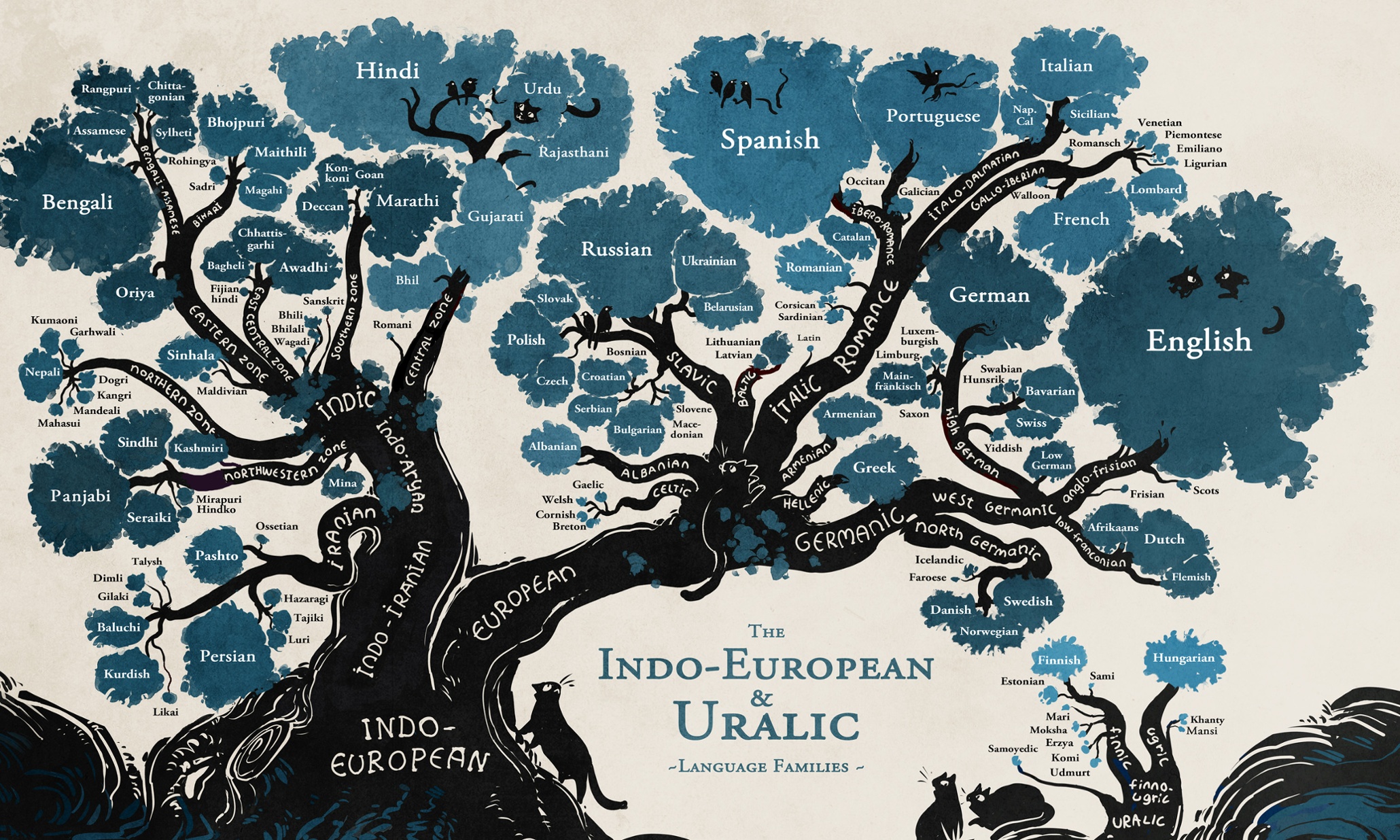How many languages are out there? How did Language come about? These are just a few questions of many that linguists ask and debate about. I watched a video called
How Languages evolve and it spoke about how language has evolved over the generations and one of the topics they covered was the origin of language. This topic even today is debated amongst many people because we haven't truly discovered how language came about. So their (Alex G) away of explaining this was by going back to the Biblical story of '
The Tower of Babel'.

This was meant to explain the origins of different languages. The word 'Babel' means the 'gate of God' but in the book of Genesis it's mentioned as 'The City and Its tower'. To summarize the story, it claims that after the flood the people started to migrate east and when they settled they started to build a city that would lead to heaven and let them go anywhere they wanted in the world. And the reason this was possible was because they all spoke the one (same) language thus being able to build together, they could communicate with each other making the impossible possible back then. So then when god saw what they were doing he split them up making them unable to understand each other, which lead to the discontinuation of the Tower. Since the people no longer understood each other, those who did migrated to different areas to create their own tribe and city. But from those tribes, they split into even more smaller tribes and migrated away to live in their own land. After being isolated from one another for so long they started to talk differently or use different dialects. The reason behind this was they were living in different environments, with different neighbors, different food, and different climate. They had to adapt to everything thing that were foreign to them so eventually creating a different Lagrange. Now this is where the 'Language Family Trees' come in.

In the video it briefly talks about Language Family trees and how many of the languages we have today can be traced into a smaller number of languages. An example they gave was the language Chinese; Chinese is classified as a single language but it could be broken down into different dialects and other "types" of Chinese like Mandarin or Cantonese(there are many more). This could be seen in many other languages, you just have to pay close attention and listen. Since I speak Spanish,
I see a lot of comparison with other countries like Spain, Cuba etc. This is especially true when listening to Portuguese, I don't understand it but there are some words that sound very similar to Spanish that I can guess what it means. This was so fascinating to me because illustrating it as a Language tree made it so much more easier to understand the concept of how one root had branches and from those were even smaller ones and from there it would just keep on growing. I just thought it was genius to explain the evolution of language and how far it has come through this tree. Although his video was short, it explained and taught me may things; Some I may have already known but it made me see them in a different light. We may never truly know the origin of Language or how language came about but just knowing that language is growing and expanding into this strong tree is comforting because you can never forget or get rid on your roots that created what you have today.
 In the video it briefly talks about Language Family trees and how many of the languages we have today can be traced into a smaller number of languages. An example they gave was the language Chinese; Chinese is classified as a single language but it could be broken down into different dialects and other "types" of Chinese like Mandarin or Cantonese(there are many more). This could be seen in many other languages, you just have to pay close attention and listen. Since I speak Spanish,
In the video it briefly talks about Language Family trees and how many of the languages we have today can be traced into a smaller number of languages. An example they gave was the language Chinese; Chinese is classified as a single language but it could be broken down into different dialects and other "types" of Chinese like Mandarin or Cantonese(there are many more). This could be seen in many other languages, you just have to pay close attention and listen. Since I speak Spanish,
Hi Karen!
ReplyDeleteHmmm, that language tree certainly is an interesting way to look at it. And the comment about Chinese languages is interesting too. You should check out Emma's blog, she talks about the difference between two of the major Chinese dialects, Cantonese and Mandarin.
Interesting blog, keep it up!
Ciao,
Jeff
There are several interesting visuals here to help illustrate the orgins and connections between various languages. Interesting considerations.
ReplyDeleteCool topic. I know in China they have over 50 dialects for chinese
ReplyDeleteI have friends from the continent of Africa that tell me from just there country like say Nigeria there are dozens if not hundreds of languages.